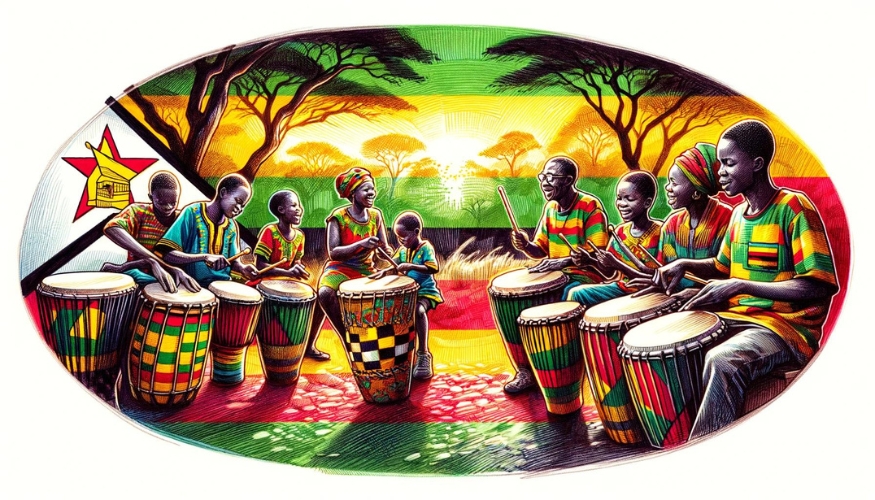The Significance of Drums in Shona and Ndebele Cultures of Zimbabwe
Drums play an important role in the traditional culture of both the Shona and Ndebele people of Zimbabwe. They are not just musical instruments, but also have a special significance in both cultures. The Shona and Ndebele people have a rich cultural heritage, and the drums are an important part of it.
Drums in Shona Culture
The Shona people use drums in a variety of rituals, including religious ceremonies, initiation ceremonies, weddings, and funerals. They are also used in traditional music and dance performances. The drums are often accompanied by other instruments, such as the mbira (thumb piano) and hosho (gourd shakers). The Shona people consider the drums to be an important part of their cultural heritage and an essential tool for communicating with the spirits and ancestors.
The drums are also an important part of the Shona people's oral history. They are used to tell stories and pass down traditions from generation to generation. The rhythms and beats of the drums are used to convey different messages and meanings.
It is worth noting that the Shona people have different types of drums, each with its unique sound and purpose. For example, the ngoma is a large drum used in religious ceremonies, while the budya is a small drum used in traditional music and dance performances.
Drums in Ndebele Culture
The Ndebele people also use drums in traditional music and dance performances. They are an important part of the culture's oral history and are used in rituals and ceremonies, including religious ceremonies, initiation ceremonies, weddings, and funerals. The Ndebele people also use other instruments, such as the umrhubhe (a reed instrument) and the isitolotolo (a metal percussion instrument), along with the drums.
The Ndebele people have a rich warrior culture, and the drums played a crucial role in it. The warriors used drums to communicate with each other during battles. The rhythms and beats of the drums were used to convey different messages and commands.
Like the Shona people, the Ndebele people also have different types of drums, each with its unique sound and purpose. For example, the ngoma is a large drum used in religious ceremonies, while the ingungu is a small drum used in traditional music and dance performances.
The Spiritual Significance of Drums
In both cultures, drums are seen as a powerful tool for communicating with the spirits and ancestors. They are believed to have a spiritual significance and are used to connect with the spiritual world. The rhythms and beats of the drums are used to invoke the spirits and ancestors and to ask for their guidance and blessings.

Picture supplied by Chatgpt 4.0
Drums are also seen as an important part of the cultural identity of the Shona and Ndebele people. They are a symbol of their rich cultural heritage and are used to express their cultural identity.
Drums are not just musical instruments in the traditional culture of the Shona and Ndebele people of Zimbabwe. They are an important part of their cultural heritage, used in rituals, ceremonies, music, dance, and as a tool for communication with the spirits and ancestors. The rhythms and beats of the drums convey different messages and meanings, and they are an essential tool for passing down traditions and stories from generation to generation.